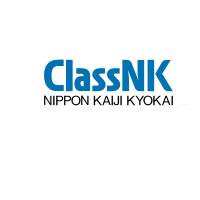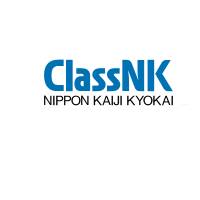Otto Marine Wins 3 Shipbuilding Contracts
Singapore-listed Otto Marine has announced that its offshore shipyard has branched out to secure three new shipbuilding contracts worth $23m in total. New contracts came along with Group's efforts in diversifying and expanding product portfolio in a weak market. An Indonesian firm has ordered a 6,500 LTDW (Long Tons Deadweight) product oil tanker, with cargo oil tank capacity of 8,300 cubic meters. Another Indonesian state-owned enterprise has entered into a contract for two units of 1,200 GT (Gross Tonnage) ferry. Chief executive Michael See said the vessels are scheduled to be delivered in the fourth quarter of 2017, and expected to contribute positively to the group's financial performance for the financial years of 2016 and 2017.
ClassNK Type Approval for World First
ClassNK issued the world’s first class approval for an immersion testing system for coatings of the inner bottom of cargo oil tanks in line with the IMO’s Performance Standard for Protective Coatings (PSPC) for cargo oil tanks to the Japanese Paint Inspection and Testing Association (JPIA). Adopted by the IMO’s Marine Safety Committee in May 2010, the new PSPC for cargo oil tanks lays out clear requirements for coating preparation, application, and service life, as well as for coating testing systems and testing processes. As the top and inner bottom of the cargo oil tank are subject to different corrosive forces, however, JPIA began…
ClassNK Approves First Corrosion Resistant Steel

April 27 (Tokyo) - ClassNK announced today that it had issued the world’s first type approval for corrosion resistant steel to the new NSGP®-1 steel manufactured by Nippon Steel Corporation’s Oita Works . The approval certifies that the new steel, which has been specifically designed for application on the inner bottom of the cargo oil tanks of crude oil tanker, complies with the IMO’s new performance standard for corrosion resistant steels. New requirements for preventing corrosion…
ClassNK Issues Approval for Cargo Oil Tank Coating Testing System

April 5 (Tokyo) - ClassNK announced today that it had provided the world’s first class approval for a coating testing system in line with the IMO’s new performance standard for the protective coatings of crude oil tanks to the Japanese Paint Inspection and Testing Association (JPIA). The approval certifies that JPIA’s new gas chamber corrosion testing system fulfills the testing requirements of the new IMO performance standard, and further certifies that JPIA’s has established effective work processes…
Japan: Advanced procedures sustain industry in turbulent markets
Japan retains its perch atop the world commercial shipbuilding heap, although its position grows increasingly precarious with the continued emphasis on shipbuilding market share by its Korean competitors, and the emergence of low-cost, hungry start-ups in China and the former Eastern bloc nations. The challenges facing the Japanese shipbuilders and ship equipment suppliers are not unlike those faced by its European counterparts during much of the past decade. While Japan's strong suit continues to be its ability to mass produce tankers and bulk carriers in a very efficient and profitable manner, its technical prowess and continually refined manufacturing procedures can only take it so far in what continues to be a labor intensive process.
Cargo Handling: Molten Sulphur Tanker Sails Four Years Sans Freeze-Ups
The operator of the world’s largest and most modern molten sulphur tanker has enjoyed four years of near-continuous service, thanks in part to the ship’s innovative thermal maintenance system. Sulphur Carriers, Inc., a subsidiary of International Shipholding Corporation, keeps M/V Sulphur Enterprise at sea hauling around 24,000 long tons of molten sulphur per trip. “We’ve had zero freeze-ups and zero maintenance associated with the bolt-on piping and valve heating system,” says Peter Johnston, Sulphur Carriers’ VP of operations. For reportedly the first time on any sulphur transport ship, a bolt-on heating system keeps the molten cargo flowing and the ship on schedule by preventing costly delays due to frozen pipes and valves.






